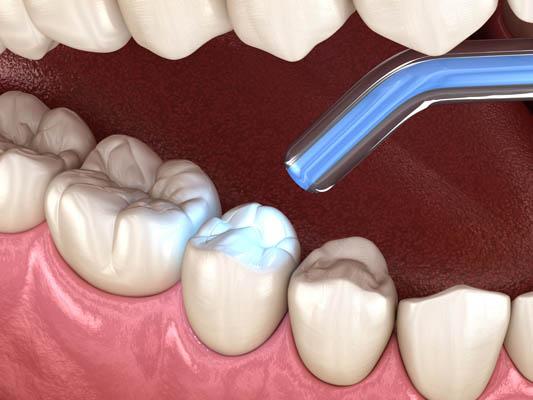Tooth decay is a common dental problem that affects people of all ages. When left untreated, it can lead to significant oral health issues, including tooth loss and infections. Dental fillings are a widely used treatment option to address tooth decay. However, many people wonder whether dental fillings provide a permanent solution or if they require replacement over time. In this article, we will explore the longevity of dental filling and their effectiveness in treating tooth decay.
Understanding Dental Fillings:
Dental fillings are materials used to restore teeth damaged by decay, cracks, or fractures. They aim to restore the tooth’s function, shape, and appearance while preventing further decay. Common filling materials include amalgam (silver fillings) and composite resin (tooth-colored fillings). The choice of filling material depends on various factors, including the location and extent of the decay, aesthetic preferences, and budget.
Lifespan Of Dental Fillings:
While dental fillings are effective in treating tooth decay, they are not considered permanent solutions. The lifespan of a filling depends on multiple factors, such as the material used, oral hygiene practices, bite force, and the size and location of the filling. On average, dental fillings can last anywhere from 5 to 15 years. However, with proper care and regular dental visits, their lifespan can be extended.
Factors Affecting Filling Longevity:
Oral Hygiene: Maintaining good oral hygiene is crucial for the longevity of dental fillings. Regular brushing, flossing, and using antibacterial mouthwash help prevent the accumulation of plaque and bacteria, reducing the risk of further decay and damage to the filling.
Diet and Habits: Consuming sugary and acidic foods and beverages increases the risk of tooth decay and can compromise the integrity of the filling. Additionally, habits such as teeth grinding or clenching can put excessive pressure on the filling, leading to its premature failure.
Bite Force and Tooth Location: Teeth that endure more pressure during biting and chewing, such as molars, may experience greater wear and tear on the fillings. The location and size of the filling also play a role in its longevity.
Material Selection: The choice of filling material can impact its lifespan. Composite resin fillings are aesthetically pleasing but may be less durable than amalgam fillings, which are known for their longevity.
Monitoring And Replacing Fillings:
Regular dental check-ups are essential for monitoring the condition of fillings. Dentists will examine the fillings for signs of wear, leakage, or deterioration. X-rays may be taken to detect any decay beneath or around the filling. If a filling is compromised or shows signs of failure, it may need to be replaced to prevent further damage to the tooth.
Affordable Dentist Near Me:
Finding an affordable dentist who provides quality dental care is essential for maintaining oral health and addressing tooth decay. To find an affordable dentist near me, consider the following:
Research: Conduct online research and read reviews to find dentists who offer competitive pricing without compromising on quality.
Dental Insurance: Check if the dentist accepts your dental insurance plan to help reduce out-of-pocket costs.
Payment Plans: Inquire about flexible payment options, such as monthly installment plans, which can make dental treatments more affordable.
Dental Schools and Clinics: Consider visiting dental schools or clinics that offer reduced-cost dental services under the supervision of experienced professionals.
Conclusion:
Dental fillings are an effective treatment for tooth decay, but they are not permanent solutions. Their lifespan depends on several factors, including oral hygiene practices, diet, habits, and material selection.



